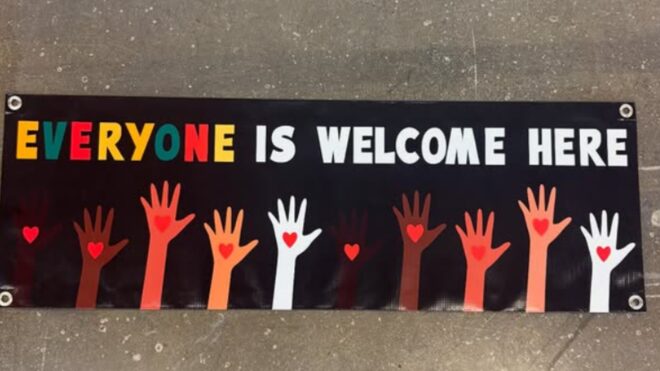
As parents, we try hard to avoid raising a spoiled child. But ironically, experts explain that our efforts may have the opposite effect.
For instance, educational psychologist Michele Borba, EdD, says that while we hate seeing our kids unhappy, constant coddling and pampering can be harmful in the long run.
Shielding kids from challenges reduces their chances of building the resilience they’ll need later.
More from CafeMom: Why Raising Kids Today Is So Much Harder Than in the ’80s, According to 1 Fed-Up Mom
“I’ve seen spoiled kids grow up to be overindulged, selfish, unhappy, and constantly dissatisfied adults,” the parenting expert says according to CNBC.
Here are the signs she says could indicate a spoiled child, along with tips on what we can do to get them back on track.
Understand common red flags.
While every child is different and these are broad guidelines that can vary based on a child’s age, any special needs, and developmental status, it may help to look for common spoiled child red flags. According to Borba, some of the signs of a spoiled child include the following:
- They never take a first offer: A spoiled child usually expects to get their way (because they usually do!). A spoiled child prefers to be the one making the conditions and telling the parent no.
- They are never satisfied. This may depend on the age, of course, but constant demands may be a sign of being spoiled. For instance, asking “please” and responding “thank you” has been replaced with demands like “give me” and “I want.”
- Their needs are always a priority: Again, this depends on the age, but a spoiled child may view their own needs and desires are their biggest concern and not recognize an inconvenience to others. Parents and caregivers are expected to set priorities aside and start catering to their needs and wants.
- Me, myself, and I: They feel entitled and expect special favors. If another kid in the class gets an MVP sticker, they get upset and say: “I deserve it more!”
- Just can’t get enough: No matter how much they acquire, it only drives them to want more.
It’s also important to note that consistent, regular behavior is more likely to indicate an issue. Every child will act out from time to time, but it doesn’t necessarily mean they are spoiled.
More from CafeMom: ‘Cringey Millennial’ Mom’s Hack To Stop Her Kids Crying & Whining Is Pure Hilarious Genius
The road to unspoiling may be a rocky one.
The good news is all of these behaviors are learned, so they can be unlearned.
Progress might be slow and most likely met with resistance, but with consistency, it is possible to undo the damage.
Say 'no' with a reason.
The first step is introducing boundaries with the word “no.” However, don’t just throw out blanket “nos” without explaining them to your child.
“When you say ‘no,’ give a short reason to help the child understand why,” suggests Borba. For example say, “Homework comes before playtime. This way, you can have fun without worry.”
Depending on a child’s age, it can also be helpful to listen and discuss rules with your child. (Just don’t find yourself overexplaining or indulging a child who insists that the rules are wrong — once they are set, stick to them.)
And if you’re worried about adding more rules to your child’s life, know that healthy boundaries can be good for children. For example, research shows that kids who are raised with structure and less permissive parenting have higher self-worth and feel more empathy toward others.
Praise the right things.
Borba suggests praising your kids when they do something for — or with — another person.
For example: “You and your classmate did such a great job on that science fair project,” or, “Giving your old Lego set to the toy drive was very thoughtful. I love your kind heart.”
Instead of: “What did you get on the spelling test?” ask, “Tell me about one nice thing you did for someone today.” This reinforces the importance of caring.
Get thankful.
“Practicing gratitude helps children feel happier, cope better with adversity, and increases their life satisfaction,” Borba says.
She encourages practicing gratitude as a family through age-based activities ranging from drawing what they’re thankful for to keeping a daily gratitude journal.
More from CafeMom: 15 Everyday Things Parents Can Do to Start Teaching Gratitude to Kids
Empower with empathy.
Encouraging empathy may help children who have learned spoiled behaviors relearn new ways. For instance, the therapist encourages parents to help their kids consider another child’s feelings, especially following inconsiderate interactions.
Additionally, the doctor suggests asking kids how their actions made the other kids feel and what could have been done to avoid the hurt feelings in order to build empathy.
Magnify giving back and limit receiving.
Find age-appropriate opportunities for kids to give back to their communities, suggests Borba. From baking brownies for a buddy to raising funds for a pet rescue. Volunteering to help someone can help shift the focus off their needs only and broaden their view.
You can also enact boundaries at home that may help. For example, for gifting occasions, set limits on the value of gifts your kids can receive (this may also take cooperation from loved ones).
But no matter what, Borba encourages parents to rehearse a gift-receiving script with their kids.
“Teach your child how to accept gifts by rehearsing polite responses prior to the event: ‘Thank you. I really appreciate it,’” she says.



